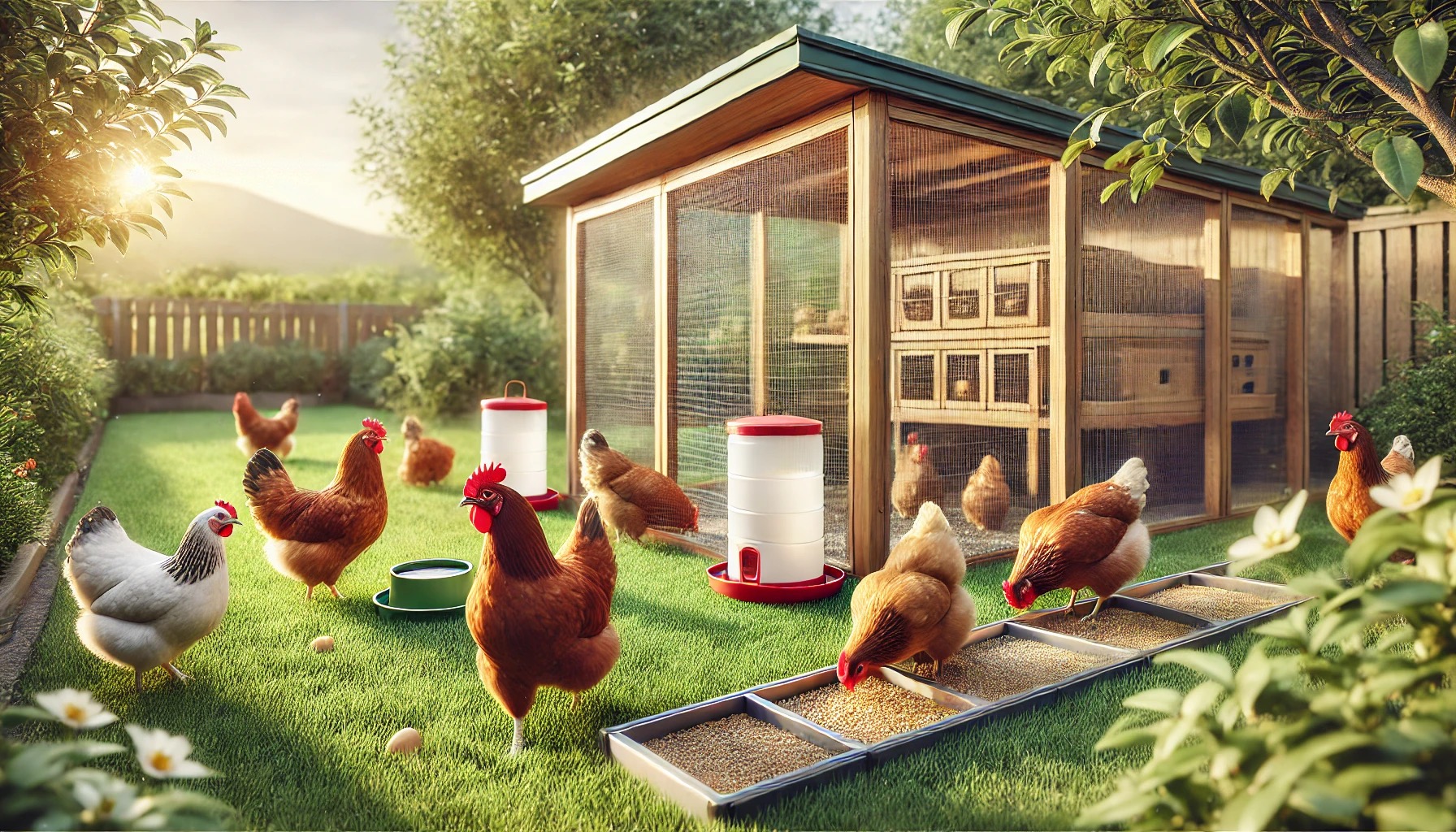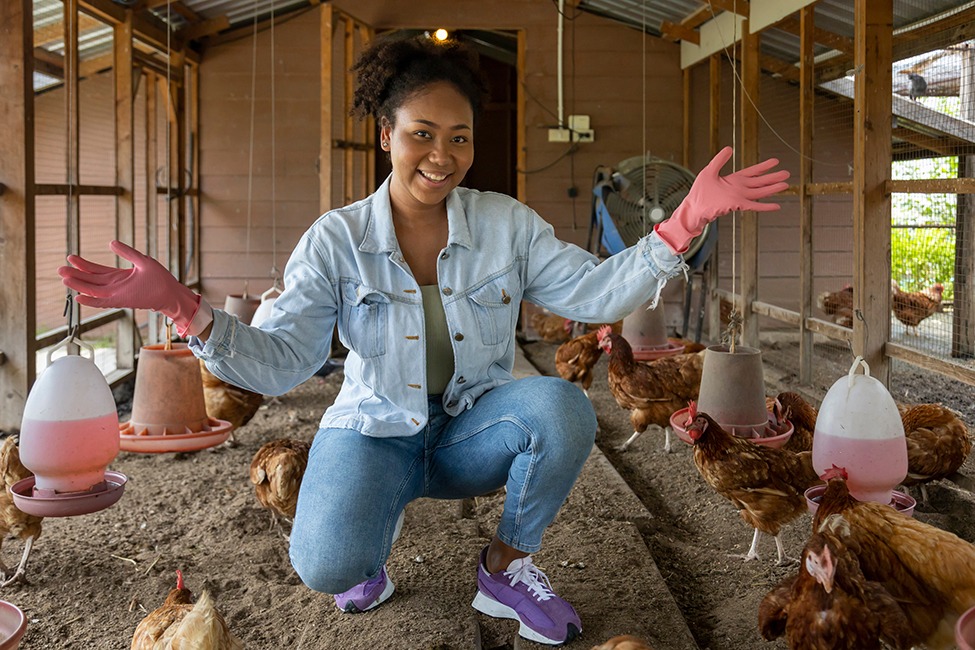
Caring for Backyard Chickens: A Comprehensive Guide
Keeping backyard chickens can be a rewarding experience, providing you with fresh eggs, natural pest control, and fun companionship. However, proper care is essential to ensure your chickens remain healthy, happy, and productive. This guide covers the key aspects of caring for backyard chickens, from daily feeding to maintaining their coop, keeping them safe, and understanding their health needs.
1. Feeding Your Chickens: Nutrition and Hydration
Proper nutrition is the cornerstone of keeping your chickens healthy and productive. A well-balanced diet will help them lay high-quality eggs, maintain energy levels, and stay healthy throughout the year.

Essential Chicken Feed
- Commercial Layer Feed: Most backyard chicken keepers provide their flock with commercial layer feed, which contains the right balance of protein, vitamins, and minerals, specifically designed for egg-laying hens. Choose a feed with around 16-18% protein to ensure optimal egg production.
- Calcium Supplement: Laying hens need extra calcium to produce strong eggshells. You can offer oyster shell or crushed eggshells as a calcium supplement to your chickens.
- Grit: Chickens need grit to help digest their food. Free-range chickens often find natural grit (small stones or coarse sand), but for confined flocks, you’ll need to provide a grit supplement.
Healthy Treats and Scraps
While chickens love kitchen scraps, it’s important to offer treats in moderation:
- Safe treats include leafy greens, fruits, vegetables, and cooked grains.
- Avoid feeding them salty, sugary, or fatty foods, and never give them raw potatoes, avocado, or chocolate, which can be toxic.
Clean Water
Your chickens should always have access to clean, fresh water. Make sure the water is changed daily and protected from freezing in winter. Hydration is vital for overall health and egg production.
2. Housing: Creating a Safe and Comfortable Coop
Your chicken coop is more than just a shelter; it’s a place where your chickens sleep, lay eggs, and find protection from predators and weather. A well-designed coop should be safe, comfortable, and easy to maintain.
Coop Size and Design
- Space Requirements: Each chicken needs about 4 square feet of indoor space and 10 square feet of outdoor run space. Overcrowding can lead to stress, bullying, and illness.
- Roosting Bars: Chickens prefer to sleep off the ground, so provide roosting bars for them to perch on at night. Place these bars at least 18 inches off the floor.
- Nesting Boxes: Hens need private spaces to lay their eggs. Provide one nesting box for every 3-4 hens, lined with soft bedding like straw or shavings.
Ventilation and Lighting
- Good ventilation is critical to keeping the coop air fresh and reducing moisture buildup, which can lead to respiratory issues and frostbite in colder months. Windows or vents near the roof help with airflow.
- Natural lighting is important for egg production. If you want to encourage laying during shorter winter days, consider adding supplemental lighting to mimic daylight hours.
Bedding and Cleanliness
- Use absorbent materials like straw, wood shavings, or pine pellets for coop bedding, which should be cleaned and replaced regularly.
- Deep Litter Method: Some chicken keepers use the deep litter method, allowing bedding to build up and compost in the coop. This reduces cleaning frequency and provides warmth, but regular maintenance is required to prevent odor or health issues.

